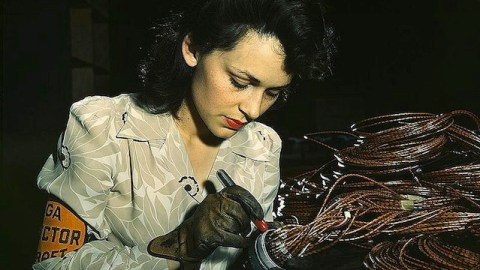Remembering Labor’s History

As I’ve written before, labor unions play a vital role in our economy. Whatever mixed feelings they have toward labor unions, Americans generally understand this. While they may not want to give unions everything they want, they don’t want to strip away unions’ rights to negotiate for workers.
Writing in the New York Times, William Cronon, a professor of history at the University of Wisconsin-Madison, explains how Wisconsin Governor Scott Walker’s attempt to strip public unions of their collective bargaining rights flies in the face of Wisconsin’s history at the forefront of labor issues. Wisconsin—Wisconsin Republicans, in many cases—played an important role in advancing worker’s rights. Professors at the University of Wisconsin originally helped to design Social Security, as well as to found the union that grew into the American Federation of State, County and Municipal Employees, which now represents 1.6 million public employees. And Wisconsin was the first state to introduce worker’s compensation, unemployment insurance, and—most ironically—public employee bargaining.
This is a history that Walker and others would like to forget, if only because it is a reminder of the tremendous contributions of organized labor. Now, in Maine, Republican Governor Paul LePage—who is clashing with public sector unions over the retirement age and legislation that would allow union members to stop paying dues—is almost literally trying to whitewash his own state’s history. LePage has ordered a large mural in the state’s Department of Labor depicting Maine workers removed. And he also has ordered the department to change the names a number of conference rooms named after labor leaders like César Chávez. Maybe Walker and LePage should try to remember why so many people thought workers and their rights were worth celebrating in the first place.
Photo credit: David Bransby




